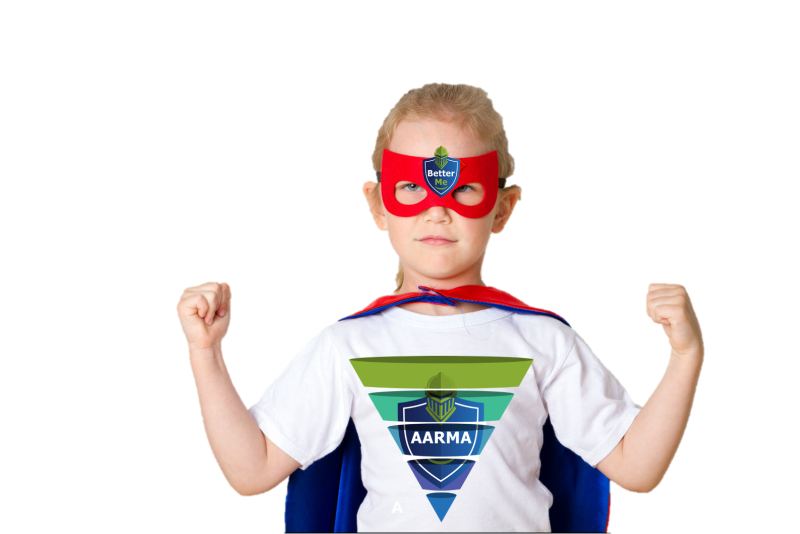
Our children are facing many challenges ahead. We can prepare them by building their Human AARMA! Their shield of protection that will set them up to face those challenges, to be successful, to contribute positively to their communities and to support their friends and family when they are in need.
The Science
There are two times in our lifetimes when the brain is at its most vulnerable and its most ‘plastic’ — that is, its ability to rewire itself into a more permanent state. This happens between ages 2 and 3, and again during the school years, presenting educators, parents, and carers with a unique opportunity to help students literally create the brain wiring they will need to be successful.
Our job as the big humans
It’s pretty simple really, role model the AARMA Principles and teach them to the next generation to set them up for success.
What is AARMA
AARMA is a set of five human behavioural principles that we want to support our children to develop. AARMA is the foundation framework we use in The BETTER ME PROJECT for schools.
The AARMA Principles are:
- Awareness
- Acceptance
- Regulation
- Motivation
- Accountability
Let’s have a quick look at each principle.
Awareness – I notice
The key to productive behaviour and wise choices is Awareness. We must help our kids to be aware of their thinking, their feelings, the impact of their choices on others and how others are impacting them and their choices.
Acceptance – I respect
For humans to live a productive life they need to be able to be accepting so that they can work with what IS and not what ISN”T. We want students to accept themselves, others, and circumstances that are beyond their control so they can move on.
Regulation – I control
Regulation is about self-control – the ability to notice and accept emotional responses and their impact on thinking and decision-making, and then the ability to take rational action.
Motivation – I focus
Children and teens who are successful are motivated. Every human is motivated in different ways, usually by a combination of both inside (intrinsic) and outside (extrinsic) forces. We must help our children discover how they are best motivated so they can access that superpower!
Accountability – I own
Communities work when individuals feel a sense of accountability and ownership for their actions, and acceptance of the consequences of their actions. This is one of the most difficult yet important life skills we can teach our kids.
Tips for educators, parents and carers
-
Awareness – “I notice” – Model curiosity out loud! When you notice something — a feeling, a mistake, a pattern — say it aloud (“Hmm, I’m noticing I’m feeling a bit rushed right now”). This helps children build their own inner voice for awareness.
-
Acceptance – “I respect” – Show that accepting doesn’t mean agreeing. Use small examples like, “I wish it wasn’t raining, but it is — so let’s grab an umbrella.” Kids learn to manage disappointment and adapt from seeing acceptance in action.
-
Regulation – “I control” – Teach “pause before react.” Try short breathing breaks, a sip of water, or a quick shake-it-out movement. Kids learn that emotions are normal — they just need a moment before choosing what to do next.
-
Motivation – “I focus” – Help kids find their why. Notice what lights them up and link tasks to it (“You love creating things — finishing your project lets you design your own poster!”). Motivation grows when meaning is personal.
-
Accountability – “I own” – Celebrate ownership, not perfection. When a child admits a mistake, thank them for being honest before talking about solutions. This builds trust and shows that accountability is about learning, not blame.
